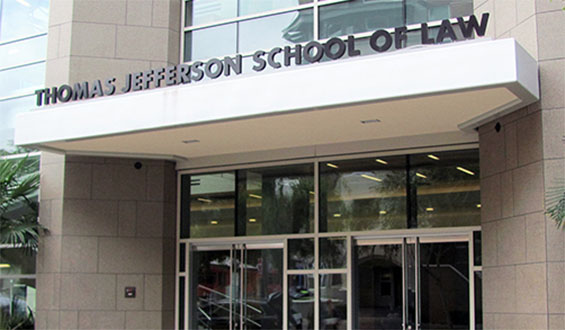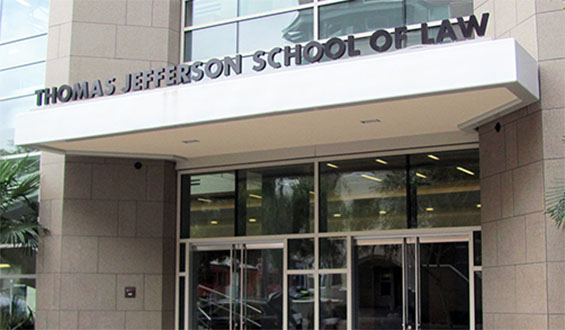
A long-running class-action lawsuit which suggests that one of the lowest-performing law schools in the country is guilty of fraud has been officially cleared to go to trial, which could generate serious problems for schools with high tuition rates for low-quality degrees.
A California judge has ruled that false-advertising claims made against the Thomas Jefferson School of Law by four former students has enough power to take the case to court.
Based in San Diego, the school is routinely listed as within the lowest tier of legal schools in the nation. Students who attend the school have a median LSAT score of 148, around 46% of its students pass the bar, and nine months after graduation close to 40% of graduates are unemployed. However, the school charges students a tuition rate of $42,000 per year, causing the typical graduate to leave with over $100,000 in debt, writes Blake Neff for The Daily Caller.
In her class action lawsuit, former student Anna Alaburda is accusing the school of advertising false employment prospects in an effort to attract students. Alaburda graduated with honors from the school in 2008 with $150,000 in debt. Her lawsuit was filed in 2011 after she was unable to get a job in the legal profession.
The judge’s decision to reject the school’s motion for summary judgement comes a win for Alaburda, who will see her case go to trial next May.
Alaburda argues that the school increased its employment rate by falsely counting students employed in non-legal positions, such as those working as waiters. She claims that the average salary for graduates of the school remained constant between 2006 and 2011 despite a massive increase in the legal industry during that time. A former TJSL employee is backing Alaburda in her case, having admitted to manipulating data about graduates.
Alaburda’s attorneys have also claimed to have evidence that supports the school having counted students as “employed” so long as they had a job after graduation, even if they were currently unemployed. In addition, they say that the school changed statistics for information to be released to the public.
Judge Joel Pressman made several declarations in his ruling concerning the upcoming trial, including that it would be considered deceptive of the school to count non-legal jobs within its employment statistics.
“A reasonable consumer would not believe employment figures included any and all employment, which would render the figure meaningless in the context of a legal education,” he said. “A reasonable consumer expects the employment figure to include graduates who work in law-related jobs.”
Between 2011 and 2015, applications to the school decreased by over 50%. In 2013 the school was forced to cut teaching and administrative positions after falling short on enrollment targets. In 2014, the school restructured its debt after missing a bond payment deadline, writes Jacob Gershman for The Wall Street Journal.
The school was added to the list of colleges and universities facing increased financial oversight by the federal government just this month.




